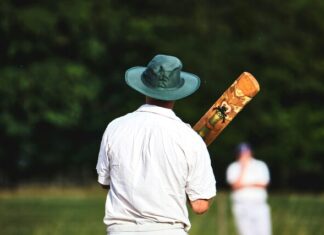
By JONATHON HOWARD
SOUTHERN Downs equine operators are bracing for a potentially deadly cold season that could rock the equine industry after the first case of lyssavirus was found in a horse west of Allora last week.
Seven Southern Downs residents, who came in contact with the infected horse, were offered rabies vaccinations as a precaution on Monday.
Very little is known about the Australian Bat Lyssavirus – including whether humans can contract the virus from horses – and peak equine industry bodies are now calling on the state and federal governments to supply additional funding to widen research and protection efforts.
It was the first time that lyssavirus was discovered in a horse and the first time that infection occurred from insect-eating microbats – rather than the larger flying foxes.
Queensland Health swooped on the Highborne Farm near Allora on Friday, 17 May, where they remained over the weekend.
Staff interviewed dozens of people who may have been in contact with the two infected horses, which were put down almost immediately after they were discovered.
The centre’s owner, Cameron Osborne, told reporters that his property and the area were not home to bat colonies despite the discovery of dead microbat remains found near the property during a weekend search.
“We are in an area that’s believed to be free of bats,” Dr Osborne said.
“We don’t have many trees on the property and we’ve taken care not to plant fruit trees or anything that attracts bats.
“No-one knows if bats fly through here overnight but we certainly haven’t seen them – and my neighbours are of the same opinion.”
Dr Osborne, former doctor for the Wallabies and Queensland rugby teams, and three other workers were undergoing precautionary treatment, but were closer to being cleared later this week.
He said others don’t work on his property but came into contact with the sick horses at another farm north of Warwick.
“Because of possible exposure to the lyssavirus we’ve been advised it’s very wise to have a rabies vaccination,” Dr Osborne said.
“Worldwide, anyone who has been exposed to this virus, who have not had any signs of the illness and have followed through the vaccination have not developed the condition.”
He said vaccination began on Saturday and they will require three more injections over a fortnight.
“It’s not nerve-racking but it is concerning,” Dr Osborne said.
“We are just following prudent biosecurity measures as we did when the horses began showing signs of being unwell.”
He said a third horse kept in the same paddock as the two sick horses had not contracted the virus.
At first it was thought the horses might have the more common Hendra virus.
Chief health officer Jeannette Young said human cases of lyssavirus were rare.
Rabies vaccinations were 100 per cent effective with the closely related lyssavirus so long as treatment was conducted promptly.
Biosecurity Queensland has quarantined the property and is contacting people who may have been with the horses up to 10 days before the animals showed symptoms.
Simply patting an animal would not be sufficient to cause infection. The number of people involved is not yet known but it is likely to be small.
A colony of microbats – mammals about as big as a sparrow – lived in a stable on the property.
A Cairns boy died in February as a result of lyssavirus.







